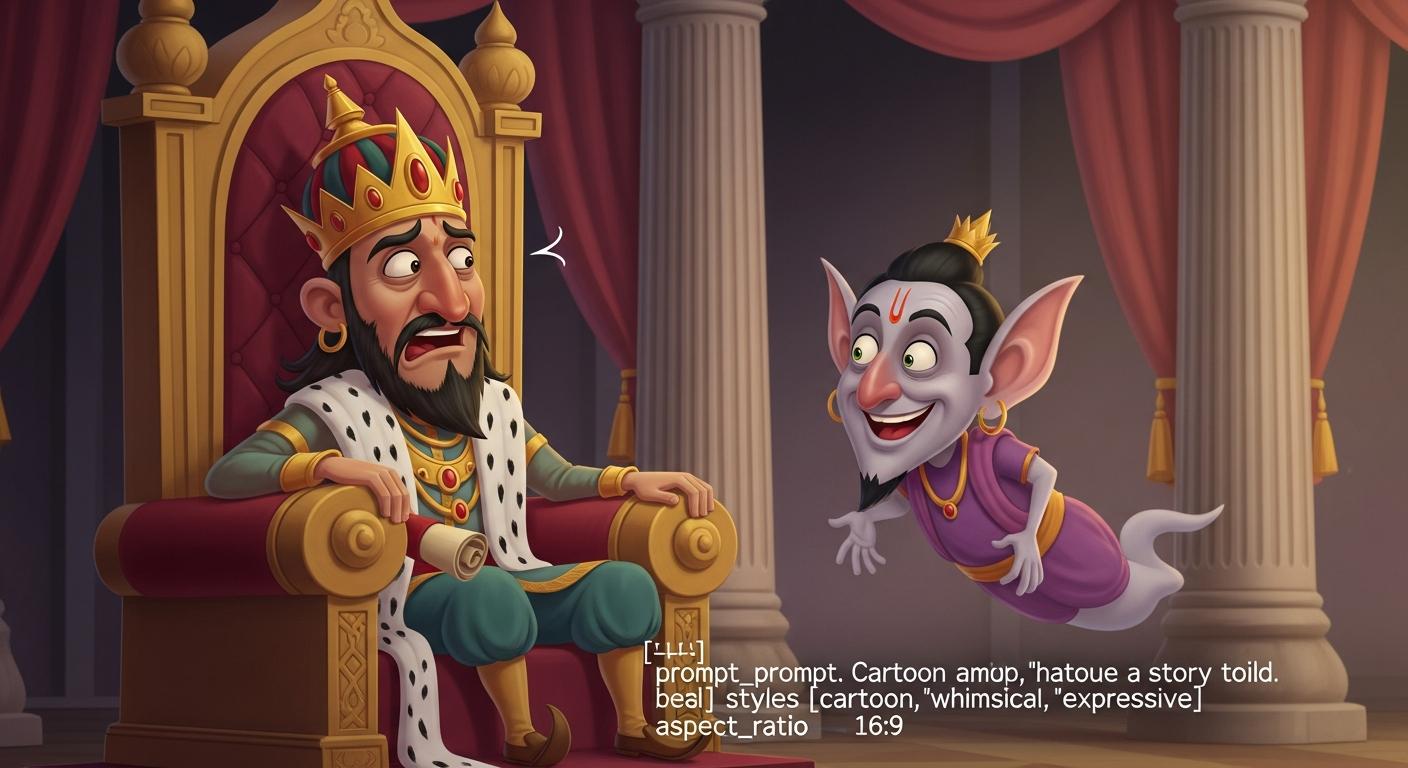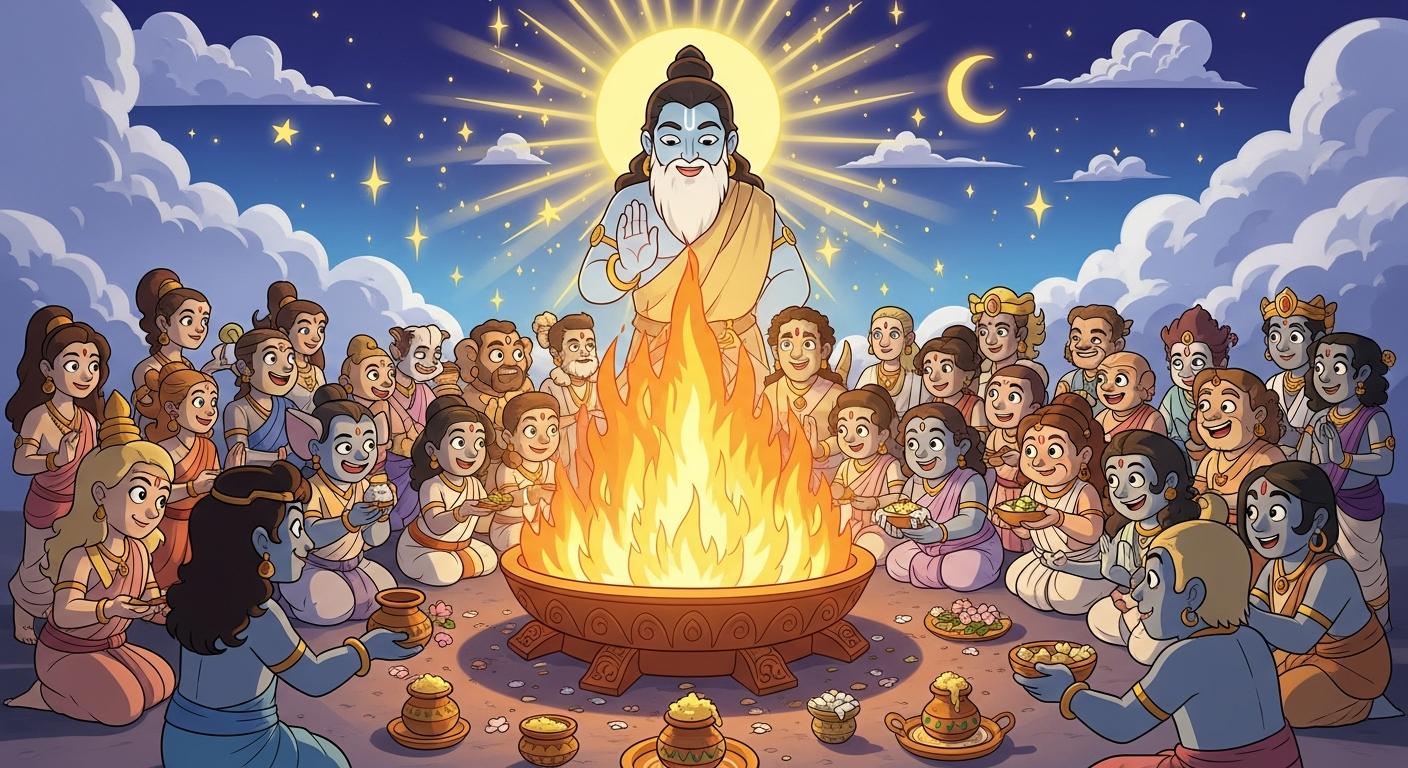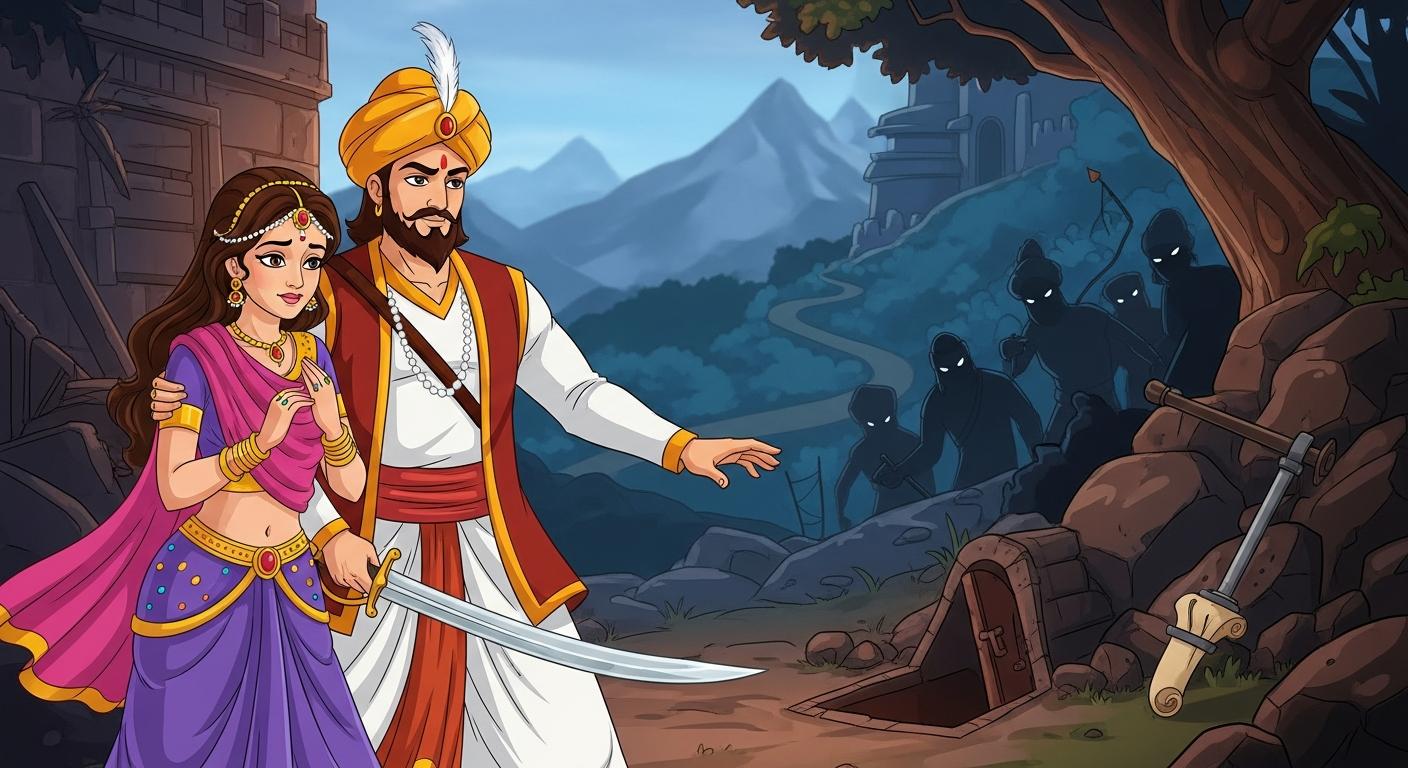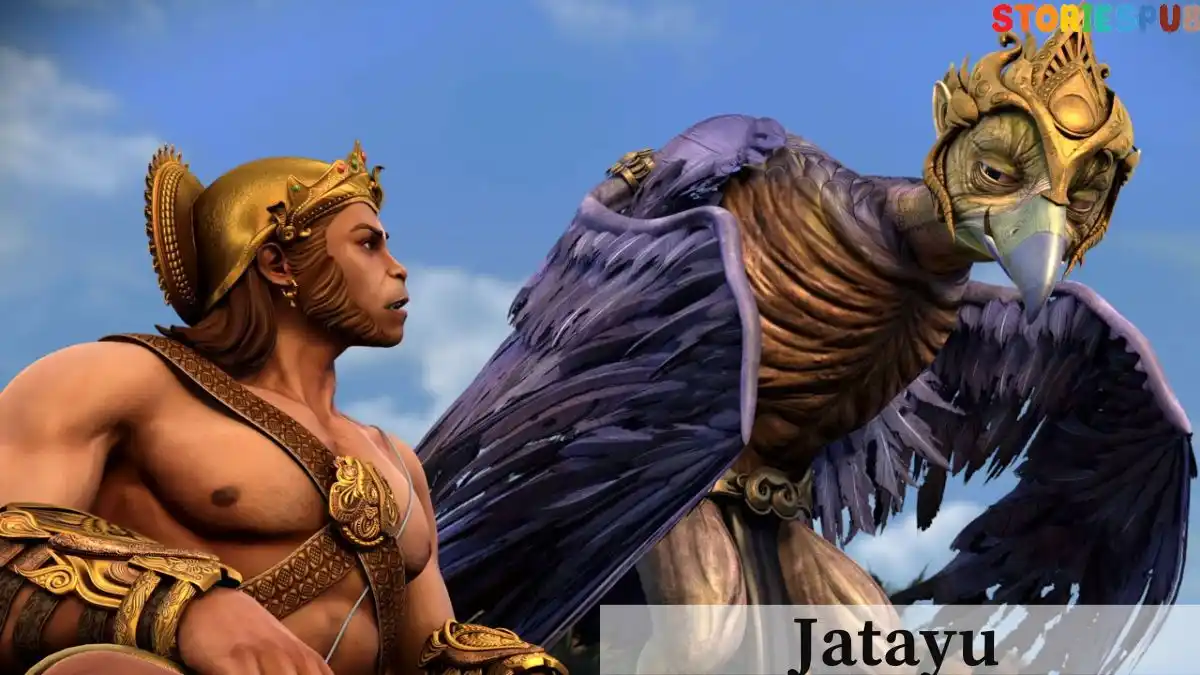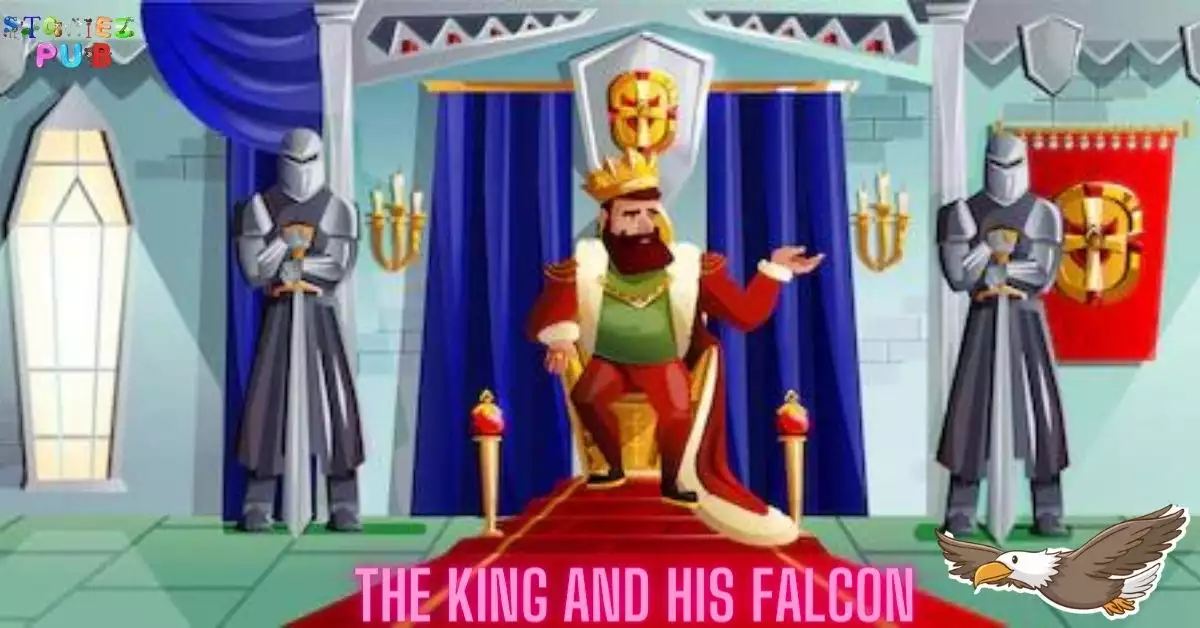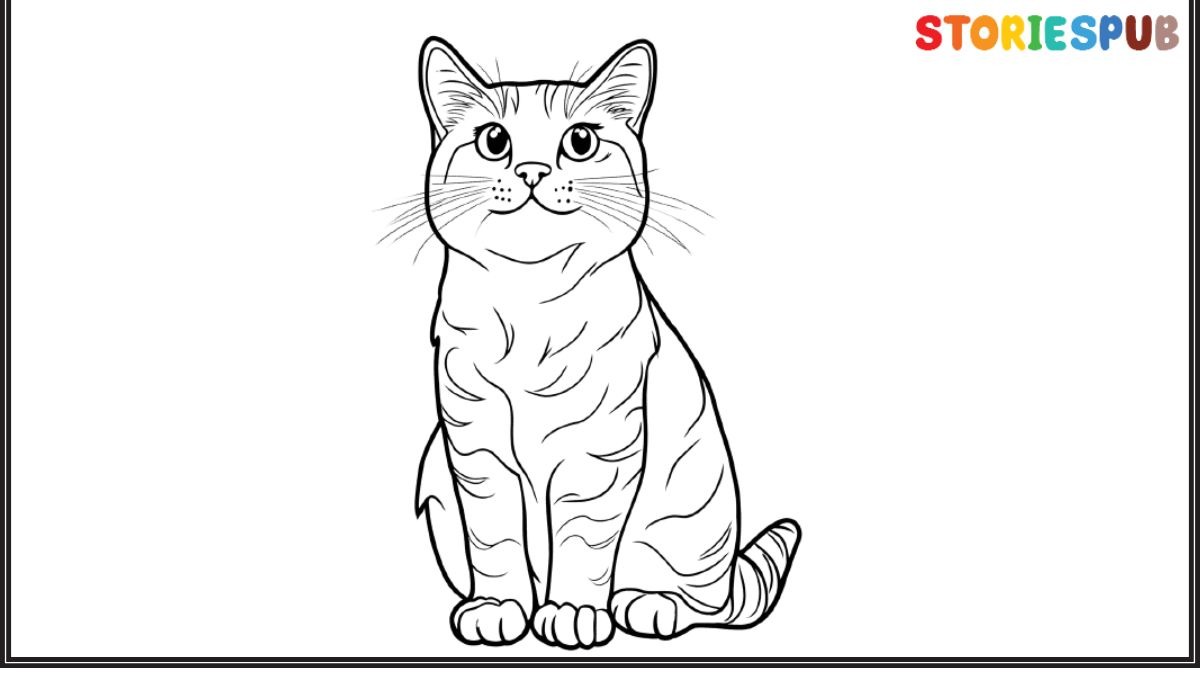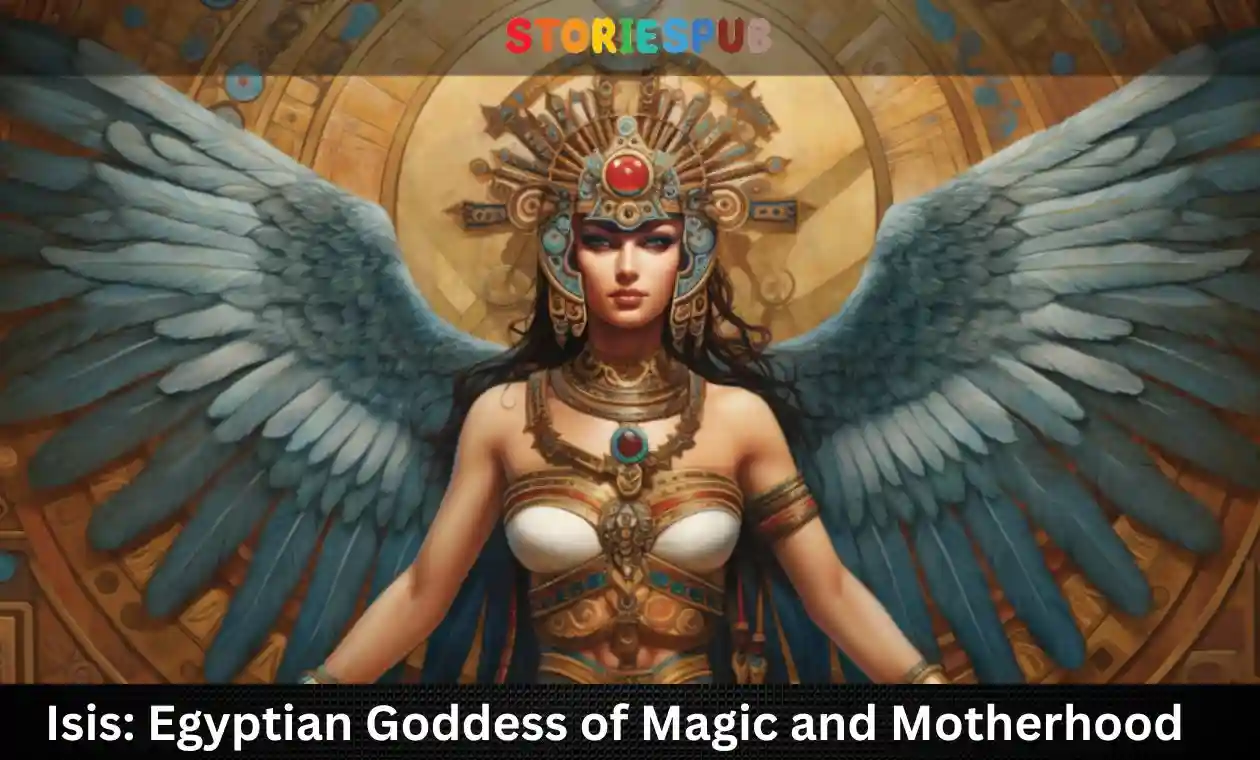Summarize this Article with:
A Complete List of Greek God, Their Influence, Limitation, and Power
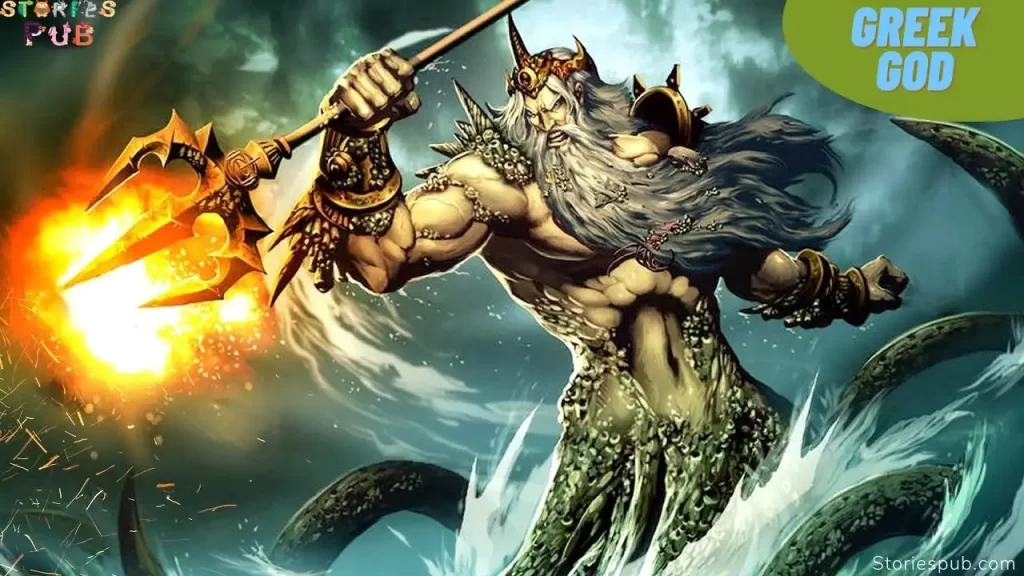
In ancient Greek religion and mythology, the gods and goddesses were considered to be powerful supernatural beings that controlled various aspects of the natural world and human life. They were worshipped and prayed to for help, guidance, and protection in everyday life.
Each deity had their own distinct personality traits, symbols, and powers that set them apart from the others. For example, Zeus was known as the king of the gods and the god of thunder and lightning, while Athena was known as the goddess of wisdom and warfare. Aphrodite was the goddess of love and beauty, while Demeter was the goddess of agriculture and harvest.
These gods and goddesses often interacted with each other and with humans in the myths and legends of ancient Greece, creating a rich and complex pantheon of deities. The stories surrounding these gods and goddesses helped to explain natural phenomena and provided moral lessons for the people of ancient Greece. Artists, writers, and other creative people continue to study them and get ideas from them.
Here is a complete list of Greek gods and the powers that made them famous.
Achilles, the Greek God:
In Greek mythology, Achelous was a river god and the patron of the Achelous River in Greece. He was known for his vast knowledge and wisdom and was considered the god of all rivers, fresh waters, and oaths. Achelous was depicted as a horned or serpentine being and was associated with the horns of the Greek god Zeus. He was also a god of entertainment and was said to have played music on his horns for the enjoyment of the other gods. In terms of personality, Achelous was known for his cunning and resourcefulness, as well as his tendency to be mercurial and unpredictable. Overall, Achelous was considered a powerful deity in the ancient Greek pantheon and held a significant role in Greek mythology and religion.
AEOLUS, the Greek God:
In Greek mythology, Aeolus was the god of the winds. He was known for his ability to control the winds and direct them as he pleased. Aeolus was depicted as a wise and benevolent god and was often sought out for his power to calm storms and direct favourable winds for seafarers. He lived on the floating island of Aeolia, where he kept the winds locked in a cave, releasing them as he saw fit. Aeolus was also known for his hospitality and was considered a friend to sailors and travelers. In some myths, he was depicted as a son of the Titans, while in others, he was a son of the god Hippotes. Aeolus was a relatively minor figure in Greek mythology, but his power over the winds made him a popular figure in tales of seafaring and adventure.
AETHER, the Greek God:
In Greek mythology, Aether (also spelled “Ether”) was the personification of the upper atmosphere, or the bright, pure air that was believed to surround the Earth. As a deity, he was associated with light, space, and the heavens. Aether was also thought to be the source of all life and the substance from which the universe was made. He was a primordial deity and one of the first entities to exist in the world. As a symbol of the sky and the heavens, Aether was associated with the power of creation and the ultimate source of life, energy, and light.
Alastor, the Greek god:
In Greek mythology, Alastor was the spirit of family feuds and vengeance. He was believed to be the one who punished those who wronged their own families and caused strife within their households. In this way, Alastor embodied the idea of justice and retribution for wrongdoings within the family. The name Alastor is derived from the Greek word “alazein,” meaning “to wander.” In this sense, Alastor was seen as a wandering spirit who would seek out those who had wronged their families and bring them to justice.
APOLLO, the Greek God:
In Greek mythology, Apollo was the god of the sun, music, poetry, prophecy, and archery. He was known as the ideal of beauty and harmony, as well as being a great healer and oracle. As the sun god, Apollo brought light to the world and was considered a source of knowledge and enlightenment. He was also associated with the arts, especially music, and was said to have invented the lyre, a stringed musical instrument. Apollo’s arrows were also seen as symbols of sudden death and sudden change, and he was often invoked for protection against plagues and diseases. In many myths, Apollo was depicted as a young and handsome man, often accompanied by the muses and other divine beings.
ARES, the Greek God:
In Greek mythology, Ares is the god of war and violence. He is one of the twelve Olympian gods and is depicted as a warrior with a fierce temper, eager to engage in battle. He is often portrayed as a fearless warrior, but also as quick-tempered and impulsive, with a tendency to act without thinking things through. Despite his association with war and violence, Ares was also revered as a god of courage and bravery in battle, inspiring soldiers and warriors to fight with bravery and strength. He was the son of Zeus and Hera and was born on the Greek island of Thracia. His symbols include the spear, shield, and dog.
Aristeus, the Greek god:
In Greek mythology, Aristaeus was a deity associated with beekeeping, olive growing, cheesemaking, and other pastoral activities. He was the son of the god Apollo and the nymph Cyrene and was considered to be a patron of hunters and fishermen as well. Aristaeus was known for his knowledge of herbs and medicines and was often invoked for protection from plagues and diseases. He was also associated with the underworld and the dead, and it was believed that he was able to communicate with the spirits of the deceased. In terms of personality, Aristaeus was depicted as a gentle and benevolent deity who was well-liked and respected by both the gods and mortals.
Asclepius, the Greek god:
In Greek mythology, Asclepius was the god of medicine and healing. He was the son of Apollo and the mortal woman Coronis and was educated by the centaur Chiron. Asclepius became known for his ability to cure the sick and bring the dead back to life, which eventually made him so popular that he was worshipped as a god. He was often depicted holding a staff with a snake wrapped around it, which symbolised his power to heal and regenerate life. This staff is still used as a symbol of medicine and health today. In myth, Asclepius was eventually killed by Zeus for raising the dead, but was later resurrected and made immortal by the gods.
ATLAS the Greek God:
In Greek mythology, Atlas was a Titan who was punished by Zeus for bearing the weight of the sky on his shoulders. He was considered the god of astronomy and navigation and was often depicted as holding a celestial sphere or globe on his shoulders. As a powerful and enduring figure, Atlas symbolises strength, endurance, and steadfastness. In addition, he was considered a teacher of the art of astronomy and navigation to the nymphs and was sometimes associated with the creation of the stars and constellations. The name Atlas is often used to denote strength and steadfastness and is still used today as a given name for boys.
ATTIS Greek God:
Attis is a deity of ancient Phrygian and Greek mythology. He was associated with vegetation and rebirth and was believed to have died and been resurrected every year as part of a cycle of death and renewal. Attis was considered a consort of the goddess Cybele, who was worshipped as the mother goddess of nature in the ancient world. The cult of Attis was especially popular in Asia Minor, where his festival, the Attisia, was held every spring to celebrate his resurrection. Attis was depicted as a beautiful young man with long hair and was often depicted as holding a pine cone, which symbolised his connection to the natural world and the cycles of birth and death.
Boreas, Greek God:
Boreas was the Greek god of the north wind and winter. He was depicted as a strong, fearsome man with wings and a lion’s skin and was known for his power and swiftness. In Greek mythology, Boreas was often associated with the harsh, cold winds of winter and was sometimes portrayed as a bringer of winter storms and blizzards. He was also thought to be responsible for the drying of the rivers and the turning of the leaves in autumn. Boreas was believed to be the father of several children, including the Harpies, and was often invoked in rituals to protect against the cold winds of winter.
Caerus, the Greek god:
In Greek mythology, Caerus was the personification of opportunity and luck. He was depicted as a young man with a bald head and wings on his shoulders. The name Caerus is derived from the Greek word which means “right moment” or “opportune
In ancient Greek religion, Caerus was worshipped as the deity of favourable moments and the right moment to act. He was considered a harbinger of good luck and was invoked in times of need. According to some sources, Caerus was associated with the arts of divination and was said to be able to foretell the future.
In terms of power, Caerus was a minor deity and did not have any significant powers. However, his ability to bring good luck and favourable opportunities made him an important figure in ancient Greek religion and mythology.
Castor, the Greek god:
In Greek mythology, Castor was a demigod and one of the famous twin brothers known as the Dioscuri. He was the son of Zeus and Leda, the Queen of Sparta, and was born along with his twin brother Pollux. Castor was known for his expertise in horsemanship and was considered a great warrior. He was also known for his skills as a charioteer.
Castor was revered as a patron of horsemanship and was worshipped by horsebreeders, riders, and charioteers. He was often depicted in Greek art and literature riding on horseback and was sometimes associated with the constellation Gemini.
In Greek mythology, Castor and Pollux were close companions and were often portrayed as inseparable. They are known for their bravery and loyalty to each other and were considered to be the embodiment of brotherly love. The friendship and bravery of Castor and Pollux have made them popular figures in Greek mythology, and their story continues to be retold to this day.
Cerus, the Greek god:
Cerus is a Greek name that is not commonly known in Greek mythology. It is possible that you may have misspelt the name, as there is no mention of a god or deity named Cerus in the classical myths. Can you please double-check the spelling and let me know if you meant to ask about a different god or deity?
Chaos, Greek God:
In Greek mythology, chaos was the primaeval state of the universe, from which everything else emerged. Chaos was considered both a force and a deity and was often depicted as a dark, formless void, symbolising the state of the universe before the emergence of the cosmos. Chaos was considered to be the first of all beings, the origin of all things, and the source of all change and movement. In this sense, chaos was a powerful force, shaping and influencing the creation and evolution of the world. As a deity, Chaos was not worshipped or revered but was rather seen as an impersonal and uncontrollable force, beyond the reach of human understanding or manipulation.
Charon, Greek God:
In Greek mythology, Charon is the ferryman who transports the souls of the dead across the rivers Styx and Acheron to reach the underworld. He is depicted as an old man with a long white beard and a hooded cloak, and he requires payment of a coin (the “obol”) to ferry souls across the rivers. Charon is often considered to be a frightening figure, as he is the first and last face the souls of the dead see in their journey to the underworld. Despite this, he is also seen as a necessary figure, as souls cannot enter the underworld without his help. Charon’s name is associated with the Greek word for “fierce brightness,” which reflects his role as the conductor of the dead to the afterlife.
Cronos, the Greek god:
In Greek mythology, Cronos (also spelled Kronos) was the son of Uranus and Gaea and the father of the twelve Titans. He was known as the god of time, agriculture, and harvest. As a young god, Cronos overthrew his own father and became the ruler of the universe. He was infamous for his cruelty, including the act of swallowing his own children, as he feared that one of them would overthrow him just as he had overthrown his father. However, his son Zeus was eventually able to overthrow him and take his place as the ruler of the gods.
The name Cronos is derived from the Greek word “chronos,” which means “time.” As a god of time, Cronos was often associated with the cycles of life, death, and rebirth, and he was believed to have a hand in controlling the ageing process of all living things. In art, he was often depicted as an elderly man with a sickle, a tool associated with the harvest.
Cronos remains a powerful figure in Greek mythology, representing the cyclical nature of time and the inevitability of change. Despite his cruel actions, he is also seen as a symbol of the power and wisdom that come with age and experience.
Crios, the Greek god:
Crios is a lesser-known Greek god who was the personification of the primal force of creation. He was one of the Titans, a group of gods who preceded the more widely known Olympic gods. He was depicted as a young man with a muscular build and was considered a god of the heavens and the sky. He was also associated with order, rule, and governance and was believed to have been responsible for maintaining the balance of the universe. Crios was also believed to have the power to create and shape the world and was therefore considered an important figure in ancient Greek mythology and religion.
Cronus, the Greek god:
In Greek mythology, Cronus was the youngest of the Titans and the father of the first generation of gods, including Zeus, Poseidon, Hera, Demeter, and Hestia. He was known as the god of time and the ruler of the universe. He controlled the passage of time and was said to have the power to turn back the hands of time. Cronus was also known for his role in overthrowing his own father, Uranus, and becoming the ruler of the universe. He was depicted as a mature man with a long beard and a scythe, symbolising his control over time. The name Cronus is sometimes spelled “Kronos” and is derived from the Greek word “chronos,” which means “time.”
DEIMOS, the Greek god:
In Greek mythology, Deimos was the god of terror and dread. He was one of the two sons of Ares, the god of war, and Aphrodite, the goddess of love. Deimos was often depicted as a companion to his brother Phobos, who was the god of fear. The two brothers were said to ride into battle with Ares, spreading panic and terror among the enemy.
As the personification of fear and terror, Deimos held a significant role in ancient Greek beliefs. The name “Deimos” means “dread” or “terror” in Greek. He was often depicted as a youthful, athletic figure with a fearful expression, sometimes accompanied by snakes and a quiver of arrows.
In literature, Deimos was often invoked in times of war or conflict to help the warrior spread fear among their enemies. He was considered a powerful and influential figure, but one that was feared by the people and gods alike. Despite his fearsome reputation, Deimos was not necessarily considered evil but rather a necessary force in the world, representing the power of fear and its role in human affairs.
Dionysus, the Greek god:
In Greek mythology, Dionysus is the god of wine, fertility, and theater. He is also associated with religious ecstasy and the wild, untamed aspects of nature. He was considered a patron of the arts and is often depicted holding a wine cup or a thyrsus (a staff topped with a pine cone).
His name is derived from the Greek “Dionysos,” which means “follower of Dionysus.” He is the son of Zeus and Semele and was often considered the last of the twelve Olympian gods to join the pantheon.
Dionysus was also believed to have the power to free people from their fears and worries and to bring joy and happiness through his festivals and celebrations. He was worshipped in many parts of Greece and was a popular deity among both the common people and the elites.
Overall, Dionysus symbolizes the powerful, life-affirming aspects of the natural world and the transformative power of the arts.
Top of Form
Erebus, the Greek god:
In Greek mythology, Erebus was the personification of darkness and the deep, earthy underworld. He was said to be the son of Chaos, the primordial god of the void. Erebus was also believed to be the husband of Nyx, the goddess of night, and the father of other gods and creatures associated with darkness and death, such as Hypnos (sleep), Moros (doom), and the Keres (death-fates). Despite his ominous association with the underworld, Erebus was not necessarily seen as an evil deity. Rather, he was considered a necessary aspect of life and the cycle of death and rebirth.
EROS, Greek God:
In Greek mythology, Eros was the god of love and desire. He was depicted as a handsome young man with wings, often carrying a bow and arrows, with which he could make people fall in love with one another. He was believed to be a mischievous deity who could cause people to fall deeply in love, often causing them to act irrationally and lose control of their emotions. Eros was often associated with Aphrodite, the goddess of love and beauty, and was considered one of her attendants. The name Eros comes from the Greek word “eros,” which means “sexual love.” Despite being one of the lesser-known gods in Greek mythology, Eros remained a popular figure in literature, art, and philosophy throughout the centuries, representing the power of love and desire over reason and self-control.
EURUS, the Greek God:
In Greek mythology, Eurus was the god of the east wind. He was one of the four wind gods, along with Boreas (north wind), Notus (south wind), and Zephyrus (west wind). Eurus was known for bringing drought and was often depicted as a harsh and unpredictable deity. However, he was also sometimes seen as a bringer of good weather, especially in the spring and summer. The name Eurus is derived from the Greek word “eurys,” which means “wide” or “broad.” It is thought to reflect the expansive power of the east wind, which could bring both harm and benefits to the land.
GLAUCUS, the Greek God:
In Greek mythology, Glaucus was a sea god and a fisherman who was turned into a sea god after eating a magical herb. He was associated with the realm of the sea and was believed to have the power to calm or stir up the sea. He was also considered a god of prophecy and was said to be able to foretell the future through his knowledge of the sea and its creatures. He was sometimes portrayed as a wise and beneficent figure, as well as a fierce warrior in battle.
Hades, the Greek god:
In Greek mythology, Hades was the god of the underworld and the dead. He was the brother of Zeus and Poseidon and one of the three most powerful gods in the ancient Greek pantheon. Hades was often portrayed as a dark and fearsome figure and was said to live in the underworld, where he ruled over the dead. He was known as the god of wealth because of the valuable minerals and precious metals that were thought to be buried beneath the earth, and he was frequently associated with wealth and prosperity.However, he was also associated with the darker aspects of life, such as death and the afterlife, and was often depicted as a stern and unforgiving ruler. Despite this reputation, Hades was also believed to have the power to grant people a peaceful afterlife and was therefore sometimes invoked as a protector of the dead.
Helios, the Greek god:
Helios was the Greek god of the sun. He was often depicted as a handsome young man driving a chariot of fire across the sky. Helios was considered the source of all light, heat, and life on earth and was revered as a powerful deity who could bring both blessings and curses upon the land. In Greek mythology, Helios was the son of Hyperion and Theia and was considered one of the twelve Olympian gods. He was associated with the symbol of the sun and was often depicted with a halo of light around his head. Helios was also known for his vast knowledge, as he was said to have witnessed all the events on earth from his perch in the sky.
Hephaestus, the Greek god:
In Greek mythology, Hephaestus was the god of blacksmiths, metalworking, and fire. He was born to Zeus and Hera, although some myths suggest he was born to Hera alone. Hephaestus was known for his exceptional metalworking skills and was often depicted as a blacksmith, forging weapons and armour for the gods.
He was considered a patron of both smiths and artisans and was often invoked by those who worked with metal. Despite his mastery of metalworking, Hephaestus was often depicted as being physically disabled, with a limp or a deformity. Despite this, he was still considered to be a handsome god and was once married to Aphrodite, the goddess of love and beauty.
Hephaestus was also associated with volcanoes and was sometimes referred to as the “father of fire.” He was believed to have created the first woman, Pandora, from clay and was said to have made her a beautiful box as a gift.
In ancient Greek art, Hephaestus was often depicted carrying a hammer and tongs, symbols of his metalworking skills, and was associated with the Roman god Vulcan. He was also associated with the idea of wisdom and was considered a god of intelligence and cunning. Overall, Hephaestus was a powerful and revered deity in ancient Greece, and his name continues to be remembered and honored today.
Heracles, the Greek god:
Heracles (also known as Hercules) was a famous figure in ancient Greek mythology and considered one of the greatest of the Greek heroes. His name means “glory of Hera,” but he was not considered a favourite of the goddess Hera. He was known for his immense strength and for completing the Twelve Labors, a series of seemingly impossible tasks set for him as punishment for killing his wife and children in a fit of madness. Despite his flaws, Heracles was considered a symbol of courage, bravery, and perseverance, and his legacy has endured for thousands of years in Western culture.
Hermes, Greek God:
Hermes is a Greek god associated with commerce, thieves, and messenger duties. He was considered the patron of travelers, shepherds, and orators, as well as the messenger of the gods. He was also known for his cunning and wit and was considered the fastest of the gods, able to move quickly and effortlessly between the mortal and divine realms. Hermes was often depicted as a youthful, athletic figure with wings on his sandals, a herald’s wand, and a wide-brimmed hat. He was considered a friendly, helpful deity and was revered as a bringer of good luck, wealth, and protection. The name Hermes is derived from the Greek word “herma,” meaning a pile of stones used as a boundary marker or a landmark.
Hesperus, the Greek god:
Hesperus is the ancient Greek name for the evening star, also known as Venus. In Greek mythology, he was the son of the dawn goddess Eos and the god of the west, Atlas. He was associated with the evening and the transition from day to night and was considered a symbol of hope and comfort for travellers and mariners.
In some legends, Hesperus was said to be a bringer of peace and prosperity, while in others he was seen as a more malevolent figure, linked to death and the underworld. Despite this, he was generally considered a relatively minor deity and was not worshipped with the same fervour as the major gods and goddesses of the Greek pantheon. Today, the name Hesperus is still used to refer to the evening star, and it continues to evoke a sense of beauty, mystery, and wonder.
HYMENAIOS, the Greek god:
Hymenaios (also known as Hymen) was the ancient Greek god of marriage and weddings. He was associated with the song and music that accompanied marriage celebrations and was believed to bring good luck and blessings to the union. In Greek art and literature, Hymenaios was often depicted as a young man holding a torch or a lyre, symbolising the fire of love and the joy of song.
The name Hymenaios was also used to describe the hymn sung in honour of the god during weddings, and the word “hymen” is still used today to refer to the hymeneal membrane in the female reproductive tract, as well as to the wedding ceremony itself. Despite his relatively minor status in the pantheon of Greek gods, Hymenaios was widely revered in ancient times as a symbol of love and commitment, and his legacy continues to influence Western culture and tradition.
HYPNOS, the Greek God:
Hypnos is the ancient Greek god of sleep. He was considered the son of Nyx (Night) and the brother of Thanatos (Death). In Greek mythology, Hypnos was depicted as a gentle, soothing figure who could bring peace and rest to the weary. He was often shown carrying a horn of opium, the plant that was said to induce sleep, and was considered a kindly deity who brought healing and restoration to those who called upon him.
Hypnos was also associated with the underworld and was said to live in a cave near the river Lethe (Forgetfulness), where the souls of the dead went to forget their earthly lives. In this sense, Hypnos was seen as both a bringer of rest and a harbinger of death.
Despite his relatively minor status in the pantheon of Greek gods, Hypnos was widely revered as a symbol of the power of sleep and the importance of rest. His name is still used today to refer to the phenomenon of sleep, and it continues to evoke a sense of peacefulness and tranquility.
Kratos, the Greek god:
Kratos is the ancient Greek personification of strength and power. He was considered a deity in some mythologies but was more commonly seen as a spirit or an attribute of the gods. In Greek art and literature, Kratos was often depicted as a muscular, formidable figure, wielding a weapon or holding shackles, symbolising his mastery over physical force and his ability to control and subjugate others.
Kratos was also associated with authority and sovereignty and was sometimes depicted as a companion of Zeus, helping the king of the gods to assert his dominance over the cosmos. In this sense, Kratos was seen as both a bringer of order and a source of tyranny.
Despite his sometimes ambiguous status in the pantheon of Greek gods and spirits, Kratos was widely revered as a symbol of strength and power, and his legacy continues to influence Western culture and tradition. The name Kratos is still used today to evoke a sense of might and authority, and it is often used as a character name in literature, film, and video games.
MOMUS, the Greek God:
Momus was the ancient Greek god of satire, mockery, and criticism. He was considered the son of Night (Nyx) and was often depicted as a mischievous, cunning figure who used his wit and sarcasm to point out the flaws and shortcomings of both gods and mortals. Momus was known for his sharp tongue and proclivity to mock and criticise everything and everyone, and he was sometimes regarded as a source of chaos and discord.
Despite his often negative reputation, Momus was also considered a necessary force in the pantheon of Greek gods, serving as a check against pride and hubris. He was believed to help keep the gods honest and humble, and his wit was seen as a tool for exposing the truth and righting wrongs.
The name Momus continues to evoke a sense of satire and criticism, and it has been used as a character name in literature, film, and other media. Although Momus was not one of the major gods in the Greek pantheon, his legacy continues to influence Western culture and tradition, and he remains a symbol of the power of wit and the importance of keeping those in authority honest and accountable.
Morpheus, the Greek god:
Morpheus is the ancient Greek god of dreams. He was considered the son of Hypnos (Sleep) and was often depicted as a shape-shifting deity who could take on any form in order to visit people in their dreams. Morpheus was believed to have the ability to bring either sweet or vivid dreams and to influence the dreams of mortals.
In Greek mythology, Morpheus was one of the Oneiroi, the spirits of dreams, and was often shown as a youthful, handsome figure dressed in flowing robes and carrying a dream-inducing herb. He was seen as a messenger of the gods, bringing messages to mortals through their dreams, and was also considered a bringer of inspiration, helping artists and poets to tap into their creative unconscious.
The name Morpheus continues to evoke a sense of dreams and sleep, and it has been used as a character name in literature, film, and other media. Although Morpheus was not one of the major gods in the Greek pantheon, his legacy continues to influence Western culture and tradition, and he remains a symbol of the power of dreams and the importance of sleep and rest.
Moro, the Greek god:
Moros was the ancient Greek personification of fate or destiny. He was sometimes considered a deity but was more commonly seen as a spirit or an attribute of the gods. In Greek mythology, Moros was often depicted as a dark, ominous figure, associated with the idea of predestination and the belief that every person’s fate was predetermined and unchangeable.
Moros was also associated with the concept of doom and was sometimes portrayed as the harbinger of death, predicting the end of life for both mortals and gods. Despite this negative reputation, Moros was considered an essential aspect of the cosmos, helping to maintain order and balance.
The name Moros continues to evoke a sense of fate and destiny, and it has been used as a character name in literature, film, and other media. Although Moros was not one of the major gods in the Greek pantheon, his legacy continues to influence Western culture and tradition, and he remains a symbol of the power of fate and the importance of accepting one’s destiny.
Nereid, Greek God:
Nereus was the ancient Greek god of the sea, known for his wisdom and his ability to prophesy. He was considered a sea and was often depicted as an old man with a long beard, inhabiting the depths of the ocean. Nereus was believed to be a benevolent deity and was considered the father of the Nereids, the sea-nymphs who were associated with the beauty and power of the ocean.
In Greek mythology, Nereus was known for his prophetic abilities and was sometimes consulted by the gods for his insight and advice. He was also known for his shape-shifting abilities and was said to be able to assume any form in order to evade capture or help those in need.
The name Nereus continues to evoke a sense of the sea and its power, and it has been used as a character name in literature, film, and other media. Although Nereus was not one of the major gods in the Greek pantheon, his legacy continues to influence Western culture and tradition, and he remains a symbol of the beauty and wisdom of the ocean.
Notus Greek God:
Notus was the ancient Greek god of the south wind. He was considered one of the Anemoi, the gods of the winds, and was believed to bring warm, gentle winds from the south. Notus was often depicted as a youthful, handsome figure with wings on his back and was considered a harbinger of spring and the start of the growing season.
In Greek mythology, Notus was considered a benevolent deity and was associated with the ideas of fertility and growth. He was often invoked by farmers, sailors, and travelers, who sought his protection and guidance on their journeys.
The name Notus continues to evoke a sense of the wind, and it has been used as a character name in literature, film, and other media. Although Notus was not one of the major gods in the Greek pantheon, his legacy continues to influence Western culture and tradition, and he remains a symbol of the power of the wind and the forces of nature.
Oceanus, the Greek God:
Oceanus was the ancient Greek god of the ocean, a vast and all-encompassing body of water that surrounded the known world. He was considered one of the original Titans, the first generation of gods, and was often depicted as a powerful, mature figure with a long beard and the horns of a bull.
In Greek mythology, Oceanus was considered a source of stability and continuity and was associated with the idea of the unchanging and eternal nature of the sea. He was also believed to have great knowledge and wisdom, and he was sometimes consulted by the gods for his advice and guidance.
The name Oceanus continues to evoke a sense of the sea and its power, and it has been used as a character name in literature, film, and other media. Although Oceanus was not one of the major gods in the Greek pantheon, his legacy continues to influence Western culture and tradition, and he remains a symbol of the majesty and timelessness of the ocean.
ONEIROI, the Greek God:
The Oneiroi were the ancient Greek gods of dreams. They were considered the personifications of dreams and were believed to reside in the underworld. The Oneiroi were said to visit humans during the night and bring them dreams, both good and bad, that could provide insight, guidance, or warnings.
In Greek mythology, the Oneiroi were often depicted as young, ethereal beings with wings and flowing robes. They were considered powerful figures, capable of influencing the thoughts and emotions of those who dreamed. Some of the most famous dreams in Greek mythology, such as the dreams of King Midas and King Nebuchadnezzar, were believed to have been sent by the Oneiroi.
The name Oneiroi continues to evoke a sense of the mysterious and the subconscious, and it has been used as a character name in literature, film, and other media. Although the Oneiroi were not major gods in the Greek pantheon, they remain an important part of Western culture and tradition, and they continue to influence our understanding of dreams and the role they play in our lives.
Paean Greek God:
Paean was the ancient Greek god of healing. He was often associated with the god Asclepius, the god of medicine and healing, and was believed to have the power to cure illnesses and heal wounds.
In Greek mythology, Paean was considered a benevolent deity and was often invoked by those in need of healing, both physically and emotionally. He was also associated with the idea of regeneration and rebirth and was believed to bring hope and renewal to those in need.
The name Paean continues to evoke a sense of healing and renewal, and it has been used as a character name in literature, film, and other media. Although Paean was not one of the major gods in the Greek pantheon, his legacy continues to influence Western culture and tradition, and he remains a symbol of the power of healing and the idea of new beginnings.
Pallas, Greek God:
Pallas was a name used for several figures in ancient Greek mythology. The most prominent of these was Pallas Athena, the goddess of wisdom, courage, inspiration, civilization, law, and justice, strategic warfare, mathematics, strength, strategy, the arts, crafts, and skill. Athena was born fully grown and armoured from the head of her father, Zeus, and is often depicted with an owl, which symbolises wisdom, as her companion.
Another figure named Pallas was a son of Evander, who fought and was killed by Hercules.
The name Pallas continues to evoke a sense of wisdom and strength, and it has been used as a character name in literature, film, and other media. The legacy of Pallas Athena continues to influence Western culture and tradition, and she remains one of the most revered and respected of the ancient Greek gods.
PAN Greek God:
Pan was the ancient Greek god of shepherds, flocks, and nature, as well as being associated with panic and terror. He was depicted as a man with the legs, horns, and tail of a goat and was known for his love of music and the wild, untamed areas of nature.
In Greek mythology, Pan was often associated with the rustic, rural areas of Greece and was considered a god of the countryside. He was also believed to have the power to create panic and terror, and he was sometimes invoked to help drive off enemies in battle.
The name Pan continues to evoke a sense of the wild and untamed aspects of nature, as well as the idea of panic and terror. It has been used as a character name in literature, film, and other media, and the legacy of Pan continues to influence Western culture and tradition. Despite not being one of the major gods in the Greek pantheon, Pan remains a popular and enduring figure in the classical tradition.
PHOSPHORUS, the Greek God:
Phosphorus was the ancient Greek personification of the planet Venus as the “Morning Star.” In Greek mythology, Phosphorus was associated with the dawn and was often depicted as a young man holding a torch, representing the light of dawn.
Phosphorus was considered a benevolent deity and was associated with the idea of renewal and new beginnings. In this sense, he was seen as a symbol of hope and light, bringing illumination and new opportunities to those in need.
The name Phosphorus continues to evoke a sense of light and hope, and it has been used as a character name in literature, film, and other media. Although Phosphorus was not one of the major gods in the Greek pantheon, his legacy continues to influence Western culture and tradition, and he remains a symbol of renewal, new beginnings, and the light of dawn.
PLUTUS, the Greek God:
Plutus was the ancient Greek god of wealth and prosperity. He was often depicted as a blind man, symbolising the indiscriminate nature of wealth and fortune, as it could fall upon anyone regardless of their merit or deservingness.
Plutus was not one of the major gods in the Greek pantheon, but he was considered important in the daily lives of the people. Wealth and prosperity were considered important aspects of life, and Plutus was invoked in hopes of obtaining financial success and stability.
The name Plutus continues to evoke a sense of wealth and prosperity, and it has been used as a character name in literature, film, and other media. Although Plutus was not one of the major gods in the Greek pantheon, his legacy continues to influence Western culture and tradition, and he remains a symbol of wealth and financial success.
POLLUX, the Greek God:
Pollux, also known as Polydeuces, was the ancient Greek god of boxing and one of the twin sons of Zeus and Leda. He was also considered a patron of sailors and was often invoked for protection during sea journeys.
In Greek mythology, Pollux and his twin brother Castor were known for their bravery and skill in combat and were regarded as the protectors of travellers and those in need. They were also considered the patrons of the Olympic games and were honoured with a temple at Olympia, one of the most important religious and athletic centres in ancient Greece.
The name Pollux continues to evoke a sense of strength, bravery, and protection, and it has been used as a character name in literature, film, and other media. Although Pollux was not one of the major gods in the Greek pantheon, his legacy continues to influence Western culture and tradition, and he remains a symbol of strength, bravery, and protection.
Pontus, the Greek god:
Pontus was the ancient Greek personification of the sea. He was often depicted as a primordial deity, representing the unchanging and timeless nature of the ocean.
In Greek mythology, Pontus was considered one of the first beings to exist and was thought to have played a role in the creation of the world. He was sometimes associated with the god of the sea, Poseidon, and was seen as the source of all life in the oceans.
The name Pontus continues to evoke a sense of the sea and the ocean, and it has been used as a character name in literature, film, and other media. Although Pontus was not one of the major gods in the Greek pantheon, his legacy continues to influence Western culture and tradition, and he remains a symbol of the vast and mysterious power of the sea.
Poseidon, the Greek god:
Poseidon was the ancient Greek god of the sea, earthquakes, and horses. He was considered one of the twelve main gods of the Greek pantheon and was worshipped throughout the ancient world.
Poseidon was often depicted holding a trident, symbolising his power over the ocean and his ability to cause earthquakes. He was considered a tempestuous and unpredictable deity but was also seen as a protector of sailors and as the patron of horsemanship.
In Greek mythology, Poseidon was one of the three great gods of the cosmos, along with Zeus and Hades. He was often depicted as a powerful and mighty deity, but also as a god of justice and fairness who would punish those who broke their promises or betrayed their trust.
The name Poseidon continues to evoke a sense of power and the sea, and it has been used as a character name in literature, film, and other media. Although Poseidon was not the most prominent of the Greek gods, he continues to be an important figure in Western culture and tradition, and he remains a symbol of the power and majesty of the ocean.
PRIAPUS, the Greek God:
Priapus was the ancient Greek god of fertility, gardens, and male sexuality. He was worshipped throughout the ancient world, particularly in Greece and Rome, and was often depicted as having a large phallus, which was considered a symbol of his potency and power.
In Greek mythology, Priapus was often associated with the god of wine, Dionysus, and was seen as a deity who brought abundance and prosperity to the land. He was also considered a protector of gardens and orchards and was often invoked by farmers and gardeners to ensure a bountiful harvest.
Despite his association with fertility and sexuality, Priapus was often portrayed as an ugly and comical figure and was considered a minor deity in the Greek pantheon. Nonetheless, he continued to be widely worshipped in the ancient world, and his name remains an evocative symbol of male sexuality and fertility.
The name Priapus continues to be used in literature, film, and other media and is often associated with themes of fertility, sexuality, and abundance. Although he was not one of the major gods in the Greek pantheon, Priapus remains an important figure in Western culture and tradition and is often remembered as a symbol of the power and potency of male sexuality.
Pricus, the Greek god:
I’m sorry, but there is limited information available on the Greek god Pricus. The name Pricus is not commonly associated with any major gods or figures in Greek mythology, and there are few references to it in classical literature or other historical sources.
It is possible that the name Pricus referred to a local or regional deity in ancient Greece, worshipped in a specific area or community. Alternatively, it may be a misspelling of another Greek name, such as Priapus or Procrustes. However, without more information, it is difficult to provide a detailed description of the god or the significance of the name Pricus in ancient Greek culture.
PROMETHEUS, the Greek God:
Prometheus is a figure in Greek mythology who is best known for his role as a champion of mankind and his defiance of the gods. According to legend, Prometheus was a Titan who was said to have created the first humans out of clay and water and then stolen fire from the gods to give it to humanity.
Prometheus is often seen as a symbol of human intelligence and creativity, as well as a champion of justice and freedom. He was revered by the ancient Greeks for his bravery and determination in the face of oppression, and his story has been retold and interpreted by many artists, poets, and philosophers throughout the centuries.
Prometheus is best known for his punishment by the gods for his theft of fire. He was bound to a rock and left to suffer as an eagle came every day to feed on his liver, which would grow back overnight. This punishment was meant to last for eternity, but Prometheus was eventually freed by the hero Heracles (Hercules in Latin).
The name Prometheus has become a symbol of the human spirit and its quest for knowledge and power, and the story of his defiance of the gods continues to be a popular and influential part of Western culture. In literature, art, and film, Prometheus is often depicted as a heroic figure who represents the best qualities of humanity, and his story is seen as a testament to the enduring power of the human spirit.
Primordial Greek God:
In Greek mythology, the “Primordial” gods, also known as the “Protogenoi” or “First Born,” were the first entities to emerge at the dawn of creation. They were considered the personifications of the basic elements of the universe, including the earth, sky, sea, and light.
The most important of the primordial gods were the Greek gods:
Chaos, who represented the void and was seen as the first and most fundamental element of creation,
Gaia, who represented the earth and was considered the mother of all living things,
Tartarus, who represented the underworld and was seen as the counterpart of the sky,
Erebus, who represented darkness and was the personification of the realm beneath the earth,
Nyx, who represented night and was the personification of the darkness that followed day,
These primordial gods were considered to be the source of all other gods, as well as of all living beings and natural forces. They were believed to have created the world and all that is in it, and their power was said to be immense but also limited by their status as primordial beings.
In Greek mythology, the primordial gods were often seen as remote and mysterious figures, but their power was still acknowledged and respected by the other gods and mortals alike. They were seen as the foundation of the universe and the ultimate source of all life and being. The concept of the primordial gods has been a recurring theme in Western culture and has had a significant influence on the development of religious, philosophical, and scientific thought.
Tartarus, the Greek god:
In Greek mythology, Tartarus was the god of the underworld and the deepest, darkest part of the underworld. He was seen as the counterpart of the sky and was considered to be the opposite of the god of light, Hyperion.
Tartarus was often depicted as a dark and frightening place, a region of eternal darkness and suffering where the souls of the wicked were punished. According to legend, Tartarus was located far beneath the earth and was thought to be the deepest part of the underworld, a place where the dead were punished for their crimes in life.
As a deity, Tartarus was considered one of the Primordials, the first gods to emerge at the dawn of creation. He was also seen as a personification of the forces of the underworld and was believed to be the source of many of the most fearsome creatures that roamed the earth, including the giant beasts known as the Titans.
Despite his dark and fearsome reputation, Tartarus was still a respected figure in Greek mythology and was acknowledged as one of the most powerful gods in the pantheon. His power and authority over the underworld made him a force to be reckoned with, and he was widely feared and revered by the ancient Greeks.
Thanos, the Greek god:
In Greek mythology, Thanatos was the personification of death. He was the son of Nyx (Night) and was often depicted as a winged, hooded figure holding a sword or a scepter.
Thanatos was believed to be one of the most powerful and inescapable forces in the world, and he was responsible for separating the soul from the body and leading it to the underworld. He was often depicted as a merciless and relentless figure who took the souls of the living and delivered them to their final resting place.
Despite his fearsome reputation, Thanatos was also considered a necessary force, as death was seen as an integral part of the cycle of life and an essential step in the journey of the soul. In this sense, Thanatos was sometimes seen as a gentle and compassionate figure who helped release the souls of the dead from their earthly bodies and allowed them to begin their journey to the afterlife.
As a deity, Thanatos was widely feared and revered by the ancient Greeks. His power and authority over death made him a force to be reckoned with, and his name was often invoked in curses and spells to bring about the end of life. Despite this, Thanatos was still seen as an important part of the natural order of the world and was respected and acknowledged as one of the most powerful and influential gods in the pantheon.
Triton, the Greek god:
Triton was a sea god in Greek mythology, the son of Poseidon, the god of the sea, and Amphitrite, a sea nymph. He was depicted as a man with the tail of a fish and was often associated with the power of the ocean and its storms.
Triton was considered a minor deity but was still respected and revered as a powerful figure. He was known for his ability to control the waves and tides and was often associated with calm seas as well as powerful storms. He was also considered a messenger between the gods and humans and was sometimes depicted blowing on a conch shell to announce the arrival of important events or to call forth the winds.
In addition to his role as a sea god, Triton was also associated with music and was often depicted playing a trumpet-like instrument, the conch shell, to calm the waves and soothe the spirits of sailors. This connection to music gave him a secondary role as patron of musical arts, which helped to solidify his status as a revered deity.
Overall, Triton was seen as a powerful and influential figure who was able to command the power of the sea and the winds and was respected by sailors and seafarers as a protector of their journeys. His power and authority over the ocean made him a significant force in the ancient Greek pantheon and helped to ensure his continued reverence and worship for generations to come.
TYPHON, the Greek God:
Typhon was a giant monster in Greek mythology, often described as the “father of all monsters.” He was considered one of the greatest threats to the gods and was said to be so powerful that even the gods feared him.
Typhon was depicted as a serpentine or dragon-like creature with multiple heads and wings and was often associated with volcanic activity, earthquakes, and other natural disasters. He was said to have attempted to overthrow the gods and take control of the universe, but was ultimately defeated by Zeus, the king of the gods.
Despite his monstrous appearance and fearsome reputation, Typhon was also associated with the power of the earth and was considered a force of nature. He was sometimes viewed as a symbol of the destructive power of nature and was used to represent the dangers and difficulties that people faced in their daily lives.
In Greek mythology, the defeat of Typhon by Zeus was often used as a symbol of the victory of good over evil and the triumph of order over chaos. As a result, Typhon became a central figure in many myths and legends and was widely known and respected throughout the ancient world.
Overall, Typhon was a powerful and significant figure in Greek mythology and represented the dangerous and unpredictable forces of nature, as well as the fear and awe that they inspired in people. Despite his reputation as a monster, he was also revered as a symbol of the awesome power of the earth and was seen as a force to be reckoned with by both the gods and mortals.
Uranus, the Greek god:
Uranus was the personification of the sky and the heavens in ancient Greek mythology. He was considered the father of the Titans, the first generation of gods, and was associated with the creation of the universe.
Uranus was said to be a great and powerful god, with control over the sky and the winds. He was often depicted as a bearded, elderly man with a regal bearing and a crown of stars and was revered for his wisdom and knowledge.
In Greek mythology, Uranus was the husband of Gaia, the goddess of the earth, and together they had many children, including the Titans and the Cyclopes. However, he was eventually overthrown by his son, Cronus, who castrated him and took his place as king of the gods.
Despite his ultimate downfall, Uranus was still considered a powerful and important figure in ancient Greek religion and was revered as the symbol of the sky and the heavens. His name was also used as a term for the sky and the celestial heavens, and his influence was felt in many areas of ancient Greek life, including art, literature, and science.
Overall, Uranus was a significant figure in Greek mythology, representing the power and majesty of the sky and the heavens. Despite his ultimate defeat, he was still remembered and revered as a symbol of the vastness and beauty of the universe, and his legacy continues to influence our understanding of the ancient Greek gods and the world they inhabited.
Zelus, the Greek god:
Zeus was the personification of zeal, fervor, and devotion in ancient Greek mythology. He was considered one of the winged enforcers of the gods, along with his brothers, Nike (victory) and Kratos (strength).
Zelus was known for his unyielding passion and devotion and was often depicted as a fierce warrior, ready to defend the gods and their interests at all costs. He was also associated with the pursuit of excellence and the striving for greatness, and he was revered by the ancient Greeks as a symbol of ambition, dedication, and unwavering devotion.
In Greek mythology, Zeus was considered a companion and follower of the god Zeus and was often depicted as accompanying him on his adventures and battles. He was also associated with the god of war, Ares, and was believed to bring courage and ferocity to those who called upon him for assistance.
Overall, Zeus was a significant figure in ancient Greek mythology, representing the power and influence of zeal, fervor, and devotion. He continues to be revered as a symbol of unwavering dedication and the pursuit of excellence, and his legacy has inspired countless individuals throughout the centuries to strive for greatness and to embrace their passions with courage and determination.
Zephyrus, the Greek god:
Zephyrus is a name derived from Greek mythology and means “west wind.” In Greek mythology, Zephyrus was the god of the west wind and was considered a gentle wind, associated with spring and bringing new life. The power of Zephyrus was to control the winds, and he was also associated with flowers and growth.
Zeus, the Greek god:
Zeus is a name derived from Greek mythology and is the name of the king of the gods in ancient Greek religion. In Greek mythology, Zeus was considered the supreme ruler of the gods and was worshipped as the god of the sky and thunder. He was also associated with law, order, and justice. The power of Zeus was immense, as he controlled the elements of the natural world and was considered the ultimate authority over all other gods and mortals. He was often depicted holding a lightning bolt, symbolising his power over thunder and the sky.
Kids, how much did you like this Greek Goddesses, A Complete List of Greek God, Their Influence, Limitation, and Power, please share your view in the comment box, also share this story with your friends on Social Media so they can also enjoy this story and for more stories visit storiespub.com




